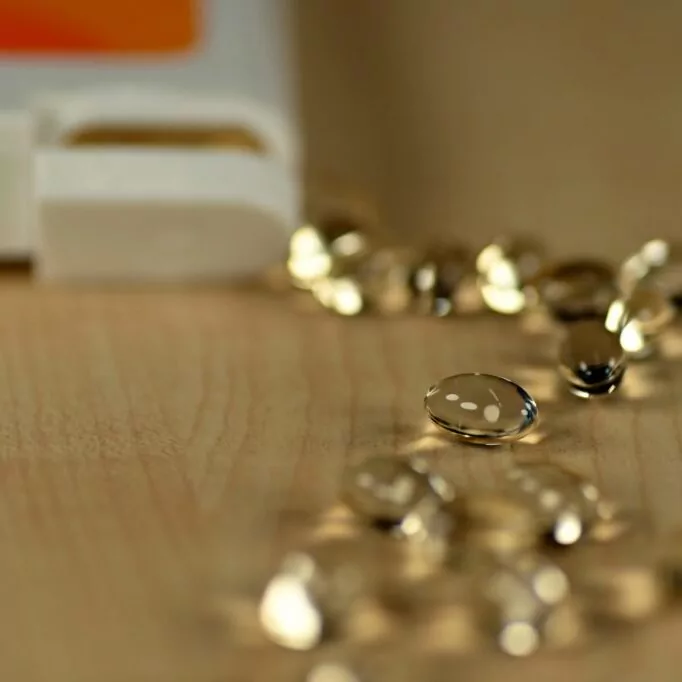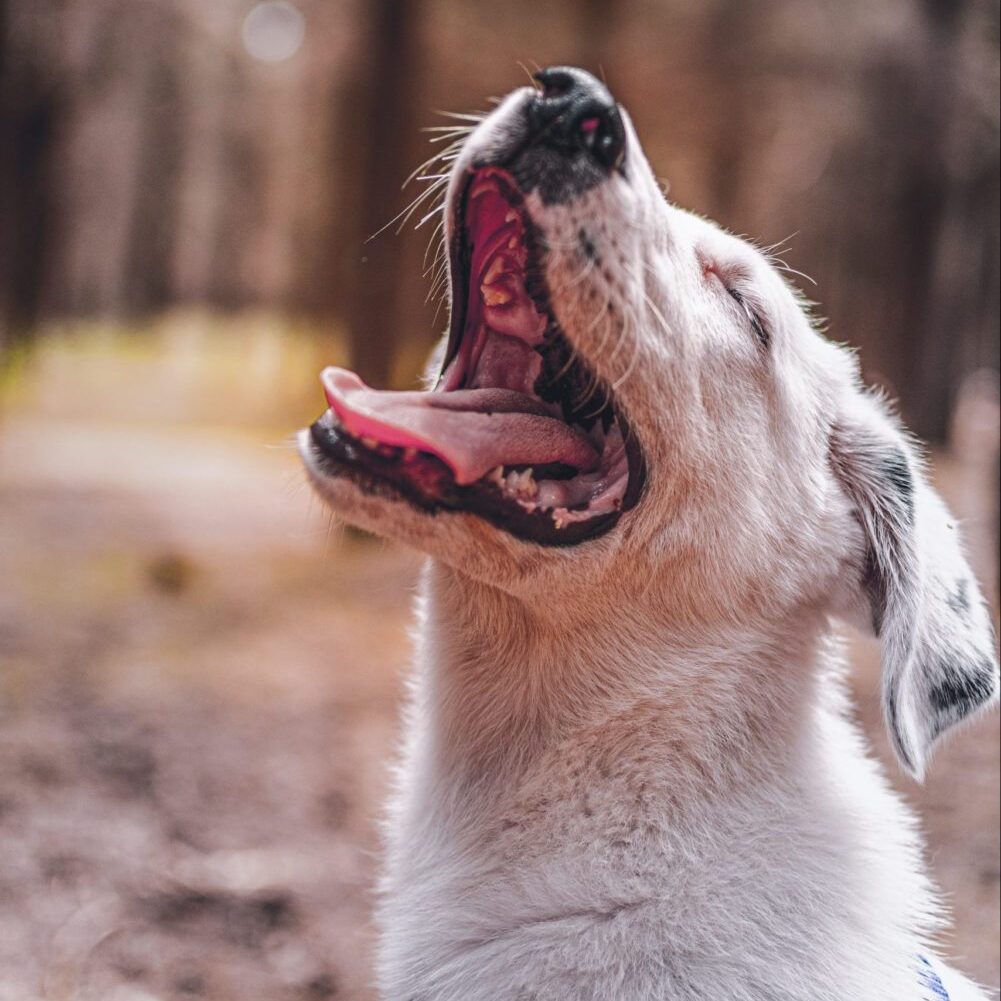Dog Health
People Foods: Which Are Safe and Which Can Harm My Dog?

What’s healthy for you to eat is doggone safe for your canine pal, right? The short answer: sometimes. Determining what people foods are safe, risky, or downright dangerous to give to your dog can be confusing. And the wrong food choice may land your dog at the emergency veterinary clinic.
You can’t go by color. Let’s look at foods that are red. Seedless watermelon chunks can be hydrating and healthy to give to your dog on occasion. But dark cherries can cause upset stomach and pray your dog doesn’t swallow a pit because it contains cyanide that can be toxic to him.
Do not be misled that small amounts of anything can be safe to your dog. You may reach for the salt shaker or add garlic to add a special zest to your dish. Neither are kind to your dog. If he eats a hefty amount of salt from sharing potato chips with you, he may react by vomiting, having tremors, a high temperature and even seizures. If he gobbles up garlic, he can battle abdominal pain, vomiting, diarrhea, increased respiratory rate and may even collapse.
You can’t assume that variations of the same food are safe for dogs. Peanut butter, for example, is often a go-to food to slather inside Kongs and other such food puzzles to occupy home-alone dogs. But if the type of peanut butter is sugar-free, that means it contains xylitol. This artificial sweetener can plummet a dog’s blood sugar level, causing seizures, liver failure and even death.
Cooked eggs deliver yummy sources of protein on occasion for your dog, but raw eggs can put your dog at risk for salmonella and cause a biotin deficiency.
White meat from a chicken breast rinsed of any seasonings can be a tasty treat to a well-behaved dog. However, the seasoned skin and pieces of fat can cause stomach upset, vomiting, diarrhea, and even painful pancreatitis in your dog.
Foods Bond People with Their Dogs
“During this pandemic with many people stuck at home, some have really bonded with their dogs and that includes at mealtime and snack time,” says Lindsey Bullen, DVM, DACVN, a board-certified veterinary nutritionist at BluePearl Veterinary Specialty Hospital of the Carolinas in Cary, NC. “I tell my clients if they have not given human food as treats to their dogs, don’t start now. Unless you know for certain that it is a safe food to give your dog, you are putting your dog at risk.”
Practicing her own advice, Dr. Bullen makes sure there are never any raisins or grapes in her home shared by her husband, two small boys, two senior cats plus a German Shepherd-Boxer mix named Heidi.
“I always err on the side of caution because my pet’s life is on the line,” says Dr. Bullen. “Years ago, my sister left her purse on the floor at my house and it contained a bag of trail mix. Gus, my dog at the time, ate the trail mix that contained raisins that can cause kidney failure. We were lucky, but it is hard for us to determine how many raisins a dog can eat to shut down his kidneys. Why take that risk?”
Justine Lee, DVM, DACVECC, DABT, of Twin Cities, MN is board-certified in both toxicology and emergency critical care medicine. She is a major advocate of verifying that a food for humans is safe to give to dogs.
She recommends that pet parents find out first if food is safe to give their dogs by contacting their veterinarians or checking on sites staffed by veterinary toxicologists such as the ASPCA Poison Control Hotline. Keep the center’s number on your refrigerator or in your cell phone as well — 888 426-4435.
One popular people food that creates a lot of confusion is avocados.
“It is a myth that avocados are poisonous to dogs,” says Dr. Lee. “Avocados, however, are deadly to birds, goats, and rabbits. So, if your dog eats a whole bowl of guacamole, he might have an upset stomach.”
Avocado’s biggest danger to dogs is the large pit, which resembles a ball. Some dogs love to play with the pit, but if it goes in the mouth it can lodge in the throat, blocking the airway, or be swallowed and cause an obstruction.
“Avocados have wonderful nutritional properties and are sources of good fat for people,” says Dr. Bullen. “But my concern is the slippery pit. I err on the side of caution and do not feed avocados to my dog, Heidi.”
No-No People Foods for Dogs
Let’s look at some popular foods and drinks you may enjoy but your dog should not. We’ve already mentioned cherries, grapes, and raisins. Here are some more to beware of.
- Apricot. This cute, fuzzy fruit is a sweet treat for you, but its seeds, leaves, and stems contain cyanide, a toxin that can cause breathing difficulties, shock, and even death if eaten by dogs.
- Bread dough. With the holidays coming, many people enjoy baking bread and making cookies. However, there is alcohol in the fermenting yeast that if ingested by a dog can quickly get into the bloodstream and cause alcohol poisoning as well as severe drops in blood pressure and blood sugar levels.
- Chocolate. The theobromine in chocolate can cause hyperactivity, vomiting, diarrhea, elevated heart rate, and tremors in some dogs. The darker the chocolate, the more trouble it can cause.
- Coffee and tea. Caffeine may give you a desired jolt of energy, but your dog is more sensitive to its effects than you are. A few slurps from your coffee mug can cause vomiting, elevated heart rate, seizures, and collapse in your dog.
- Macadamia nuts. These gourmet nuts are quite tasty to people, but depending on how many your dog eats – and the size and the health status of your dog – he can start to vomit, have an elevated temperature, and develop joint stiffness and tremors. Veterinarians and scientists are still exploring why macadamia nuts have a toxin-like effect on dogs.
- Mushrooms. There are many types of mushrooms, but a few are deadly to people and pets. If your dog eats the wrong mushroom, he can experience gastrointestinal upset, seizures, and even liver failure.
- Tomatoes. The ripened red fruit in limited amounts will not harm you dog, especially if the tomatoes are cooked and then served. However, the green parts of this plant contain a toxic substance called tomatine that can cause GI upset, heart arrhythmias and dilated pupils. If you grow tomatoes, make sure your dog cannot access and munch on these plants.
Safe People Foods for Dogs
Some people foods are wonderful additions to top your dog’s food bowl or to offer as healthy treats. Dogs, like humans, enjoy a variety of foods. Here are some safe foods your dog may appreciate.
- Apples. This fruit is packed with fiber and vitamins A and C.
- Bananas. In small amounts, bananas give your dog much-needed magnesium and potassium. But bananas contain sugar and are high in calories, so offer a small bite of your banana to your dog – not the whole banana.
- Blueberries. This fruit delivers antioxidants and phytochemicals and is a healthy source of fiber.
- Carrots. This orange veggie offers a nice, healthy crunch as a treat and aids in boosting your dog’s immune system as well as skin and coat quality.
- Canned pumpkin. This plain puree (not the sweetened pie filling) does not contain any sugar and is a popular go-to for dogs coping with sluggish appetites and mild upset stomachs.
- Cucumbers. These are a nice, low-calorie treat option for dogs, especially those needing to shed some excess weight.
- Green beans. Raw or steamed, green beans give your dog calcium, Vitamin K, and protein. Another benefit: one cup of green beans is under 30 calories.
- Popcorn. As long as the popcorn you offer your dog is devoid of salt, butter or sugar, it is a low-calorie treat. Just make sure you rid the popcorn of any unpopped kernels that can cause your dog to choke.
- White rice and unseasoned cooked pasta. Some dogs with upset tummies can benefit by eating these bland foods, which are easy to digest and help in producing formed stools.
- Yogurt. As long as the yogurt is plain without any fruit or flavorings, it may help dogs with stomach upset issues. Plain yogurt also contains probiotics. A small dollop of yogurt on your dog’s kibble may be a yummy and healthy addition.
Did you find this helpful? Share it!
Additional Information
Questions for your Vet
- What are some holiday foods I can share with my dog that won’t make him sick?
- What’s the difference between canned pumpkin and canned pumpkin pie filling?
- Why can I give my dog an unseasoned piece of broiled salmon but not sushi?
About VetScoop
Pets make our lives better. At VetScoop, we’re on a mission to return the favor by giving you access to trustworthy, science-based information so you can provide the best possible care for your pets.
Related Articles We Think You'd Like





